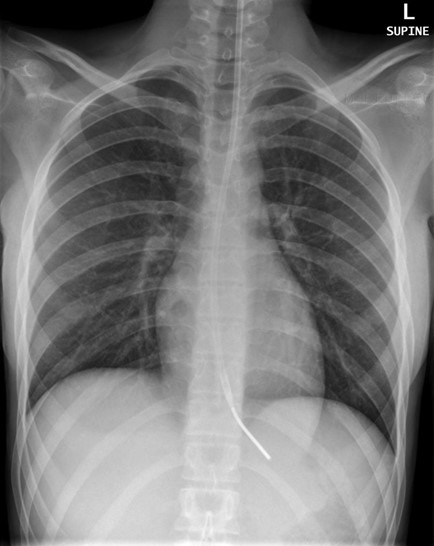The nurse is caring for a postoperative client who had surgery to decrease intracranial pressure after suffering a head injury. Which assessment finding is promptly reported to the physician?
The client's vital signs are temperature, 101.9 F; heart rate, 88 beats/minute; respiratory rate, 18 breaths/minute, and blood pressure, 138/80 mm Hg.
The client has periorbital edema and ecchymosis.
The client prefers to rest in the semi-Fowler's position.
The client's level of consciousness has improved.
The Correct Answer is A
The client's vital signs are temperature, 101.9 F; heart rate, 88 beats/minute; respiratory rate, 18 breaths/minute, and blood pressure, 138/80 mm Hg. An elevated temperature is a significant finding that may indicate the presence of an infection, which can cause further neurological damage in a client with an intracranial injury. The physician should be notified promptly, as the client may require antibiotic therapy to prevent the spread of infection.
B. Periorbital edema and ecchymosis are normal findings following head injury and should be monitored but do not require immediate intervention.
C. Resting in semi-Fowler's position is an appropriate position to maintain after intracranial pressure-reducing surgery.
D. Improved level of consciousness is a positive finding and indicates that the client is responding well to treatment.
Nursing Test Bank
Naxlex Comprehensive Predictor Exams
Related Questions
Correct Answer is D
Explanation
Radical excision. Treatment of melanoma includes surgical excision of the tumor with a margin of normal tissue to decrease the risk of recurrence. Radical excision involves the removal of the tumor, adjacent tissue, and possibly lymph nodes.
Option A, radiation therapy, may be used as an adjunct therapy, but it is not the primary treatment.
Option B, laser surgery, may be used to remove superficial lesions, but not for melanoma.
Option C, cryosurgery, is used to remove benign lesions or precancerous cells, but not for melanoma.
Correct Answer is D
Explanation
Radiographic confirmation. Radiographic confirmation is the most reliable method to verify the placement of nasogastric tubes, and it is considered the gold standard. The nurse should use it to confirm placement initially and periodically to ensure that the tube is in the stomach and not in the lungs or esophagus.

Option A, placing the end of the tube in water and observing for bubbling, is incorrect because it is not a reliable method, and it can cause aspiration or infection.
Option B, using the auscultation technique, is incorrect because it can lead to misinterpretation of bowel sounds, and it is not reliable.
Option C, measuring pH of aspirates, is incorrect because it is not a reliable method, and it can be affected by several factors, including medications, stress, and nutritional status.
Whether you are a student looking to ace your exams or a practicing nurse seeking to enhance your expertise , our nursing education contents will empower you with the confidence and competence to make a difference in the lives of patients and become a respected leader in the healthcare field.
Visit Naxlex, invest in your future and unlock endless possibilities with our unparalleled nursing education contents today
Report Wrong Answer on the Current Question
Do you disagree with the answer? If yes, what is your expected answer? Explain.
Kindly be descriptive with the issue you are facing.
